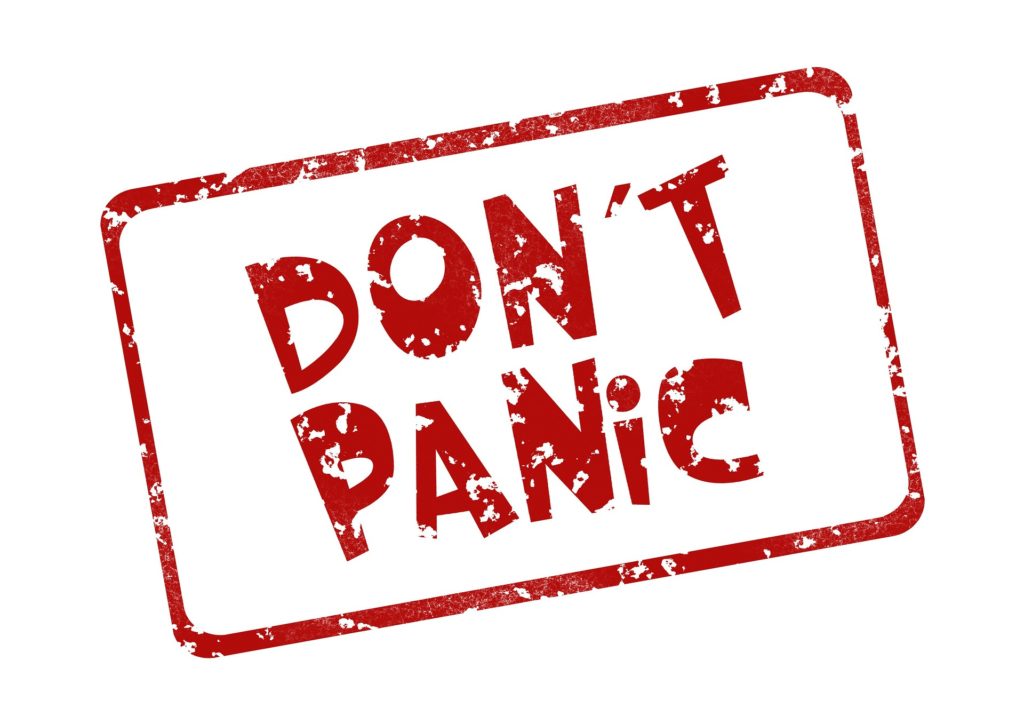In last weeks. blog we talked about how IV sedation can help both adults and children get the dental care they need without the anxiety or pain. As with any procedures, even at the dentist, safety should always be a high priority.
Many of us don’t really question the dentist. They take some x-rays, perform an exam, and tell us what’s wrong. We explain our situation, whether it’s our anxiety, gag reflex, precious experience keeping us from the procedures we need. Or our child who is deathly afraid of the dentist or can’t sit still in the chair. The dentist may suggest something more than just Novocain.
This something more may be IV sedation. It is a great way to get dental work done. Not only does it take away all the pain, you also won’t remember much, if any of the appointment. But don’t worry, you won’t be completely asleep and you will be able to answer any questions the dentist may ask. Sounds great! But not so fast. Is it safe?
 Don’t Panic
Don’t Panic
The answer is yes, it is safe when taking the necessary precautions. A recent article in Dentistry Today stresses the importance of having a separate anesthesia provider. This is why dentists have a third party Certified Registered Nurse Anesthetist (CRNA) come into their office to perform the sedation and monitor the patient.
It is important to be properly prepared for IV sedation, Colgate explains:
Because you will forfeit some of your mental faculties, you will need to prepare more for IV sedation than you do for a typical dental appointment. Here’s what you can expect before, during, and after your IV sedation:
Before
Your dentist will provide explicit instructions before your appointment. Usually, these involve recommendations to wear comfortable clothing, avoid eating or drinking 6-8 hours before sedation and stop taking certain medications (unless previously approved). You will need to provide a complete medical history and alert your dentist to any changes beforehand. Also, line up a driver to take you to the appointment and pick you up.
During
Once you make it to the dental chair, a dental professional will start an IV in your hand or arm. If you need any other medications — such as pain medicine, anti-inflammatories, or steroids — you will usually receive these through your IV, too. The (CRNA) will monitor your pulse, breathing, and blood pressure throughout the procedure to watch for any adverse reactions. You should immediately feel relaxed and unaware of any sights, smells, or sounds.
After
After the procedure, you might feel slightly drowsy for several hours. Your driver will collect any post-procedure instructions from the dentist and take you home. You will need to clear your calendar for the next 24 hours and avoid strenuous activity, unapproved medications, alcohol, operating heavy machinery, or making major life decisions. Complications with sedation are rare but contact the dentist immediately if you suspect any problems.


